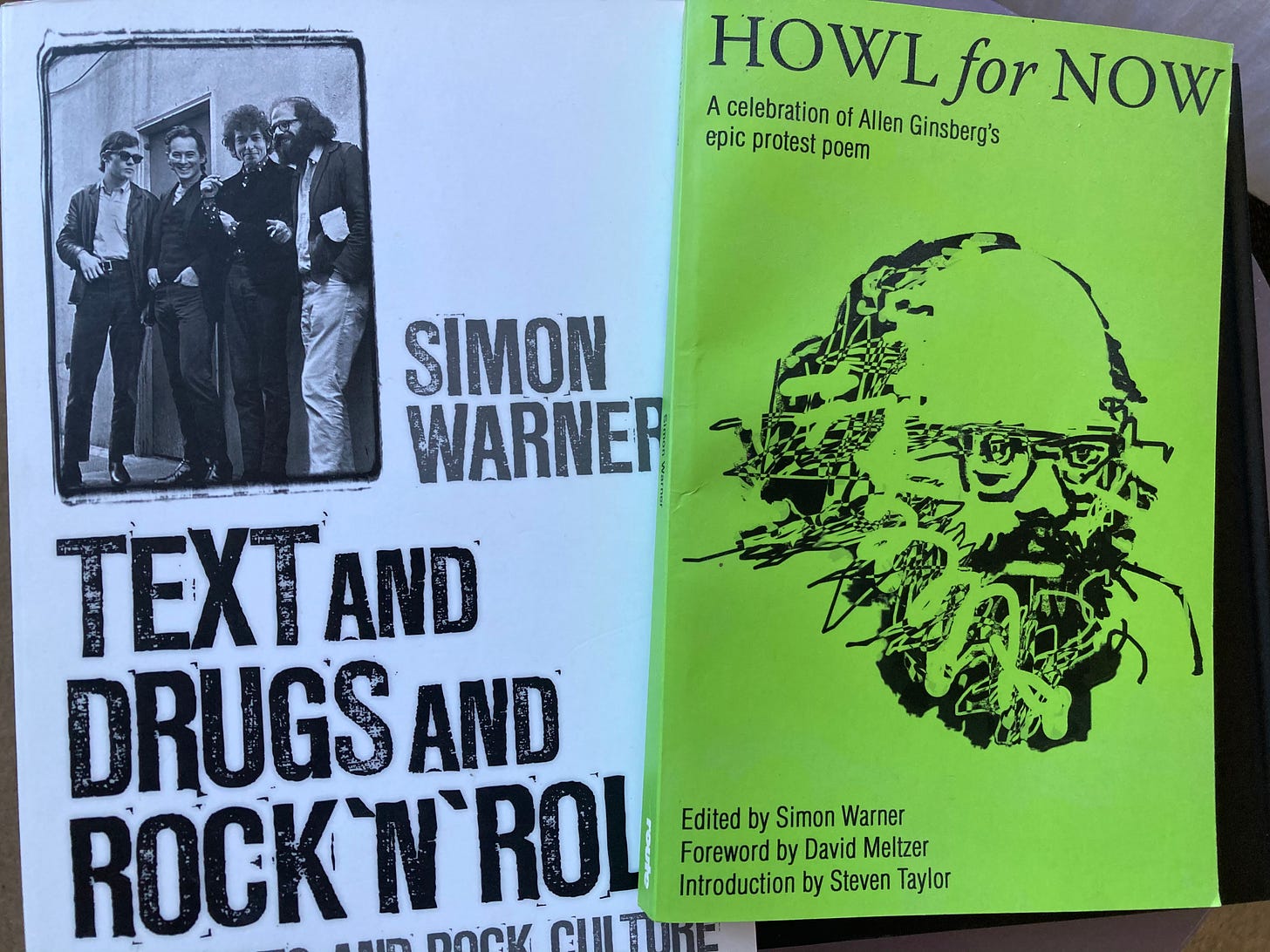Nelson’s column
Celebrated British guitarist has taken a 50-year interest in the Beats. Premier UK rock mag tells a tale with many chapters
IT WAS PLEASING to see my old friend guitarist Bill Nelson earn a substantial and deserved feature in the latest issue of leading British rock monthly Mojo.
Nelson, originally from Wakefield, Yorkshire, led prog/glam masters Be-Bop Deluxe in the 1970s and became a leading transatlantic axeman, with a good deal of flash, before shifting tack to create ambient, electronic and film music in more recent times.
An instrumental virtuoso with an interest in the theatrical possibilities of pop staging, he certainly had elements of David Bowie in his range of influences.
EMI signed his band to a long-term deal and over several albums they produced a sophisticated brand of high energy rock with a chart potential. Yet his career was stunted by the eruption of punk in the mid-1970s.
His excellence as a player counted for nothing once the gritty minimalism of the new wave bared its teeth.
Pictured above: Bill Nelson today in his home studio
He quickly moved from stadium rocker – his group had already begun to make a mark at huge venues in America – to more introspective and self-contained recording and a 50-CD career discography confirms his longevity.
He has been the central attraction at an event called Nelsonica over many years and I had the honour of interviewing him live a couple of times at those get-togethers.
In 2004, he headlined an international guitar conference I had organised entitled A Global Crossroads when he brought his then band to the School of Music concert hall at the University of Leeds. He stunned delegates from North America and Europe with his command of the instrument and inventive vision.
I also included conversations with the man in two of my books – Howl for Now and Text and Drugs and Rock’n’Roll. A fine art graduate, Nelson has always taken a close interest in the Beats and regards them still as a key catalyst to his life and writing.
Pictured above: Nelson’s Beat interests were confirmed in these titles
He produced a gorgeous tribute to Kerouac on his 1995 album After the Satellite Sings. The cut ‘Streamliner’ was part of an album which prompted an apt critical observation.
Journalist Chris Roberts in Louder commented of the record: ‘It takes the Beat Generation (Kerouac, Ginsberg) as muses, even trying to emulate Burroughs’ “cut-up” techniques in some guitar solos.’
The Mojo profile by James McNair also references Nelson’s early sign-up to the Beats and their special take on a changing world. While studying at Wakefield College of Art the guitarist’s mind was truly opened. He tells his interviewer: ‘The older students were the backend of the Beatniks. They’d stand on tables and recite Ginsberg and Kerouac.’
McNair adds: ‘A portal opened. Through it came Yoko Ono and the Fluxus movement, Oz magazine and International Times articles about the UFO club in London.’ Out of these eclectic anti-establishment stirrings surged a power on which Nelson would draw over subsequent decades.
Yet this utterly dedicated and rather unassuming figure has never quite achieved the kind of artistic acclaim nor commercial success that his talents might have justified. Quite speedily he rejected the financial persuasions of the music business, refused to take on mega North American tours and, since the 1980s, has settled down to a life that is much more about the art rather than remuneration. In many ways, the Beat flame still burns.
Note: Mojo, issue 347, October 2022, is out now




Cool stuff! John Allen Cassady